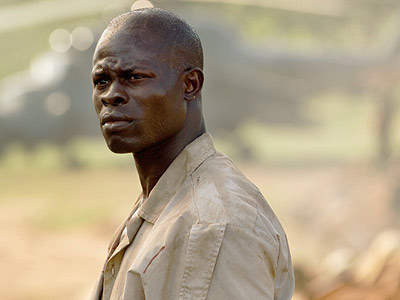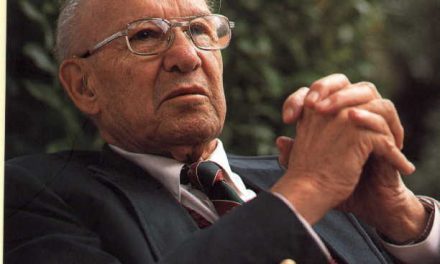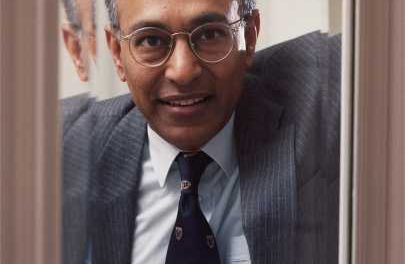
Just watched Edward Zwick’s movie Blood Diamond a few days back. It was deeply a spiritual experience. David Bruce contends, “I believe that our search for God and life’s meaning is reflected in Hollywood films and in our culture.” I am in full agreement with him. God speaks to us through the obvious and the subtle. He reaches out to us in big and small ways. By Samuel Thambusamy.
Danny Archer: So you think because your intentions are good, they’ll spare you, huh?
Benjamin Kapanay: My heart always told me that people are inherently good. My experience suggests otherwise. But what about you, Mr. Archer? In your long career as a journalist, would you say that people are mostly good?
Danny Archer: No. I’d say they’re just people.
Benjamin Kapanay: Exactly. It is what they do that makes them good or bad. A moment of love, even in a bad man, can give meaning to a life. None of us knows whose path will lead us to God. – Blood Diamond (2006)
All have sinned and have come short of the glory of God – Bible
Introduction
Just watched Edward Zwick’s movie Blood Diamond a few days back. It was deeply a spiritual experience. David Bruce contends, “I believe that our search for God and life’s meaning is reflected in Hollywood films and in our culture.” I am in full agreement with him. God speaks to us through the obvious and the subtle. He reaches out to us in big and small ways.
Despite all the blood and gore, Edward Zwick’s movie Blood Diamond (2006) unfolds a message. The movie presents several themes of interestto a socially-engaged viewer: Illegal trafficking of diamonds, child conscription, civil War fuelled by self-interests if not conflict diamonds, the illegal arms trade, slavery in rebel mining camps, the supply-demand manipulation by Transnational companies etc.
The Human nature debate
However, the film also contains several theological themes. I find the human nature debate portrayed against the background of Sierra Leon’s conflict diamonds very interesting. We are introduced to people who are driven either by the power of greed or the greed for power. And then, at key points in the film the question of human nature is raised through one of its characters.
Danny Archer (played by Leonardo DiCaprio), a trafficker of conflict diamond remarks, “Out here, people kill each other as a way of life. It’s always been like that. Danny has learnt to accept violence as the very nature of humanity. Not surprising, given his difficult childhood experience. Captain Poison from the Revolutionary United Front (RUF) remarks,“You think I’m a demon, but that’s only because I have lived in Hell”. This is an interesting comment considering RUF’s reputation internationally for its tortuous cruelty during its decade-long struggle.
Benjamin Kapanay, a social worker involved in the rehabilitation of child soldiers, remarks “It is what they do that makes them good or bad. A moment of love, even in a bad man, can give meaning to a life”.
How does Blood Diamond answer the question of human nature? Well… It does not emphatically state its answers.
However, there is hint (or at least a suggestion) that humanity is inherently good. It is what they do that makes them good or bad. People are just people. What they are (or have become) is due to their specific context. So Danny Archer may well blame his past. Captain Poison can blame his present condition.
The greed for power and the power of greed
The inherent goodness of humanity is a humanistic premise. “The idea of the essential goodness of humanity” as Stuart McAllister reminds us, “has taken on a life of its own and is now imbedded in our modern psyche”. But… is the inherent goodness of humanity an experiential reality?
In the film, Benjamin Kapanay is unable to accept this wholeheartedly“: My heart always told me that people are inherently good. My experience suggests otherwise”. We share the same anguish like Solomon Vandy, the innocent fisherman whose family is torn apart due to the conflict diamonds: “how can my own people do this to each other? True, we wonder why people behave the way they do.
The genocide in Rwanda, the ethnic cleansing in Bosnia, the killing of Muslims in Godhraare powerful reminders that the inherent goodness of humanity is a myth.” Every step forward in scientific revolution/ civilization has only made us more barbarous than ever.
We are predisposed to the power of greed and the greed for power. We grab, we hurt, and we kill like professionals without undergoing any specialized training.
Inherent goodness?! – The contradictory experience in real life
Why does it come so easily to grab, hurt and kill? The blood and gore in Blood Diamond is just a mere shadow of what actually happened? The reality was even more horrific as you fill in the details. Ironically, the RUF began its struggle raising the slogan: “No More Slaves, No More Masters. Power and Wealth to the People.”
During the course of war, the RUF was notorious for hacking the hands off to prevent people from voting. There were many child soldiers in the RUF, up to 23,000 at one point. Most were used for attacks on villages and on guard duty at diamond fields. The RUF in its decade long struggle against the Free Town Government conscripted thousands of boys and girls to serve as soldiers or as prostitutes.
Worse, those chosen were sometimes forced to kill their ownparents. They also introduced the new recruits to worst forms of barbarity and thus made them maniacal and fearless. It has been reported that some child soldiers would bet on the sex of an unborn baby and then slice open a woman’s womb to determine the winner.
Why do we do terrible things to each other?
As you watch the movie, you perfectly understand Solomon Vandy anguish:“How can my own people do this to each other?” We do the worst things to each other. The RUF was so obsessed with the greed for power that they turned a blind eye to the suffering of their own people. The diamond traffickers were overpowered by the power of greed that they traded these diamonds for blood and gore.
The diamond buyers and arms traders in the West were equally guilty of fueling the blood and gore in Sierra Leon – all for cheap diamonds. The insatiable desire of diamond wares of consumers fuelled the tortuous killing of more than a million people. You readily dentify with Danny Archer’s inner struggle: Sometimes I wonder… will God ever forgive us for what we’ve done to each other?
The ‘best-fit’ answer: Humanity curve in on itself
Experience contradicts the inherent goodness of humanity. Why does it come so naturally to grab, hurt and kill? The Christian-philosopher St. Augustine contends that humanity is in a “mess of sin” (Massa peccati) which he calls “original sin”. This state of fallen-ness (from our original state of innocence) makes it impossible to refrain from all the grabbing – hurting and killing. We still are able to choose the good, but our desires remain chained by our evil impulses.
Martin Luther, in the same Augustinian tradition used the phrase ‘mankind curved in on itself (Homo in seincurvatus) to describe the human condition. The phrase paints an image of reaching in to oneself rather than reaching out to help others and helps further to illustrate the inherent selfishness that lies at the heart. The Christian answer to the question of human nature/condition matches our daily experience of both good and evil in our encounter with people.
It’s the matter of the heart condition
It is very difficult to agree with Benjamin Kapanay when he says, “It is what humans’ do that makes them good or bad. Human experience tells us that doing good” does not come naturally. Individuals/communities need to deal with greed, envy, and lust in order to live fully and meaningfully. And so we seek redemption through technology, awareness, education and socio-economic development.
But are these able to deal with greed, envy and lust? We only gain sophistry that aids our grabbing – hurting and killing. We have a predisposition towards evil and unless we deal with it we will never be able to live “fully” and meaningfully.
As Ravi Zacharias contends, the heart of the matter is the matter of the heart. We can all seek redemption if we turn our hearts to God. But will God ever forgive usfor the things we have done to each other? In the film, Danny Archer raises this important question. There are twooptions before us: Either we believe that God has left us or God is with us.
Will God ever forgive us? – The remedy
The film points us to the way forward through Solomon Vandy plea. Dia, What are you doing? Dia! Look at me, look at me. What are you doing? You are Dia Vendy, of the proud Mende tribe. You are a good boy who loves soccer and school. Your mother loves you so much. She waits by the fire making plantains, and red palm oil stew with your sister N’Yanda and the new baby. The cows wait for you. And Babu, the wild dog who minds no one but you. I know they made you do bad things, but you are not a bad boy. I am your father who loves you. And you will come home with me and be my son again.
Like Dia, we are faced with the choice. To remain in our wretchedcondition or to seek redemption. Like Dia, who ran to his father, we can run to God our maker and seek his forgiveness for all the bad things wehave done. It takes a penitent heart to hear God say: “ I am your father who loves you. You will come home and be my son again”.
{moscomment}






